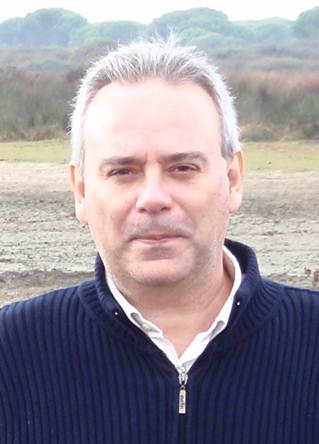Request lecture
This lecture presents some of the most relevant research projects that are being developed in Antarctica, the sixth continent, and the most isolated and virgin of them all, but we also talk about an even more unknown aspect, such as the way in which the aforementioned research is organised, and the great collaboration that exists between the different countries in order to achieve better scientific research and protection of the Antarctic environment, the result of the Antarctic Treaty. The basic scientific ideas that inspire the great Antarctic research projects are introduced, such as those related to the climate or the evolution of life on Earth, and even to exobiology, that is to say, the study of life beyond our planet, which means that the space agencies of the most important countries are involved with some of these research projects. The conference is profusely accompanied by graphic material and tries to respond to expectations and arouse curiosity on the part of the students.
Brief CV
Antonio Camacho González (València, 1965) holds a doctorate in Biological Sciences. Director of the Limnology group of the Cavanilles Institute of Biodiversity and Evolutionary Biology, and Full Professor of Ecology at the University of Valencia, his research is framed in the field of the Ecology of continental waters, global change and Limnology, both in structural and, above all, functional aspects. A specialist in the functional ecology of lakes and wetlands, his research focuses on microbial ecology and biogeochemical cycles in continental waters and, in particular, on the interactions between aquatic microorganisms and their role in the carbon cycle and the relationship of these processes with climate change.
In addition to basic research, which is mainly reflected in his scientific publications, he has also carried out a good number of applied and transfer research works. During his research career he has made several research stays in countries such as the United States of America, France, Holland, Austria, among others, and has been five times the expedition leader in research campaigns in Antarctica. He has led the implementation process in Spain of the European Water Framework Directive and the Habitats Directive for lakes and wetlands. From 2010 to 2018, he presided, by election, of the Iberian Limnology Association, an organisation that brings together scientists from Spain and Portugal who study the ecology of continental waters. Likewise, he has been head of the Environmental Sciences Division of the European Academy of Sciences, and participates in the works of the Intergovernmental Panel on Climate Change (IPCC), where he acts as a Spanish reviewer for the area of wetlands (Wetlands committee). He has also recently been elected as President of the “European Federation of Freshwater Sciences”, an organisation that brings together several thousand European scientists and technicians who research water and aquatic ecosystems. He is an advisor to different Spanish and foreign ministries and scientific agencies, regional governments, as well as international organisations (BiodivERsA, European Space Agency, NOAA, UNESCO). His scientific activity has been recognised with the award of the Spanish Society of Microbiology (1996-1997) and with the environmental innovation award of the 3M Foundation in 2004. In terms of scientific publications, so far he has produced a total of 135 publications with a leading role in most of them, either as first or last author (director of research). Of these publications, nearly two-thirds (88) are scientific articles in journals indexed in the Thompson-Reuters ISI. corresponding To date, he has directed 15 doctoral theses and has participated, in most cases as principal researcher, in thirty-seven research projects funded through public calls or through University-Company contracts.
More información
- Aquatic scientific societies around the world urgently call for cuts in greenhouse gas emissions
- The University of Valencia investigates the role of wetlands in helping to achieve climate neutrality by 2050
- The University of Valencia leads a study to find out the role of wetlands in the face of climate change
- Por qué tenemos que conservar unos humedales sanos
Science publications:
- Researchgate: https://www.researchgate.net/profile/Antonio_Camacho5
- ORCID: http://orcid.org/0000-0003-0841-2010
- ResearcherID: I-3417-2015
Social networks
- @ICBiBE_UV
- @BiologiquesUV
- @CdCienciaUV
- @MednightGTS
Request lecture

Stimulating scientific vocations is a project of the Scientific Culture and Innovation Unit that has co-funding from the Spanish Foundation for Science and Technology and the Ministry of Science, Innovation and Universties.










